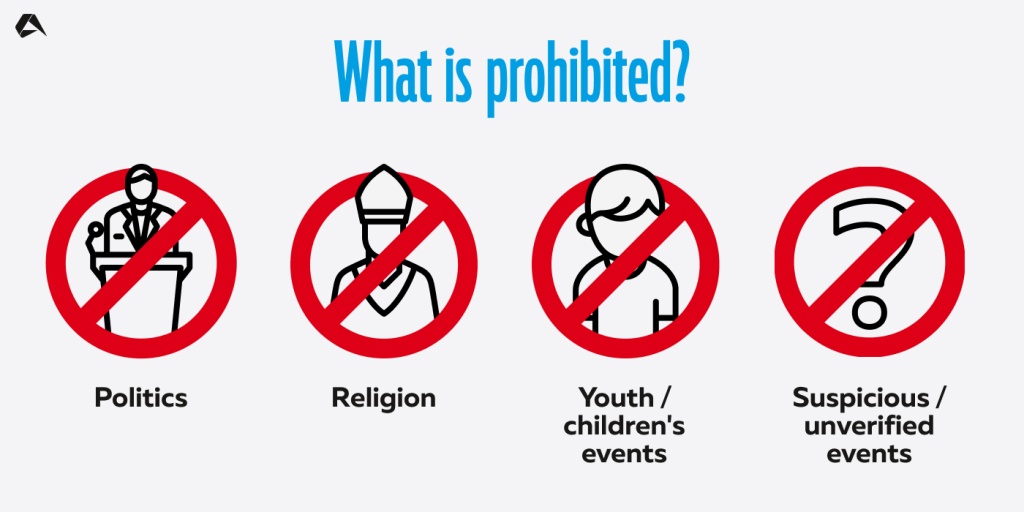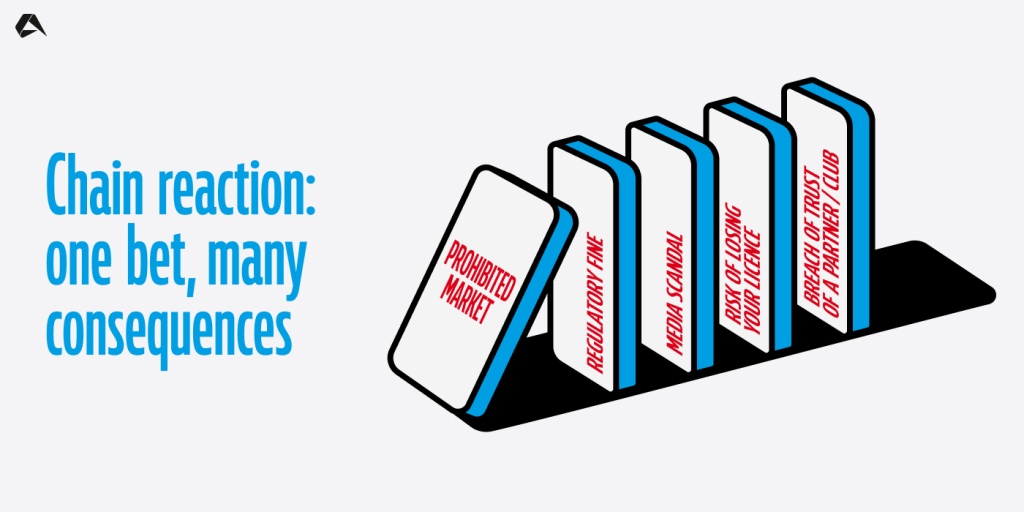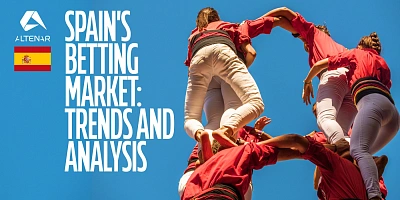In April 2025, FlaBet, the official betting platform licensed by Flamengo, one of Brazil’s biggest football clubs, quietly found itself at the centre of an awkward and potentially damaging scandal. A market appeared on the platform, inviting players to bet on Pope Francis's successor. Not who would win the Champions League or the scoreline of a Série A match, but who would become the next leader of the Catholic Church.
The FlaBet Controversy
According to a report from Games Magazine Brazil, this clearly contravened Law No. 14,790/2023, which governs fixed-odds betting in Brazil. The law restricts wagering to officially sanctioned sports and virtual games with randomised outcomes, excluding political and religious events. Yet somehow, a market predicting the future head of the Catholic Church went live on one of Brazil’s most high-profile platforms, tied to one of its most influential football institutions.
The violation wasn’t subtle. It was public, offensive to many, and illegal under the newly clarified regulatory regime. The venue was no less troubling: a branded Flamengo betting experience promoted directly through a football club with tens of millions of fans.
Was this a rogue feed error? A failure in platform oversight? A deliberate grab for attention? FlaBet quickly pulled the market, but the question remains - how did a bet offer like this get past internal controls?
The incident highlights more than just a compliance lapse. It lays bare a growing problem in regulated markets. As new operators scale rapidly and partner with household names, minor oversights can cause significant damage. And in this case, one misjudged market, however brief, put an entire brand, and by extension, a major sports club, in the spotlight for the wrong reasons.
Other High-Profile Bet Acceptance Violations
FlaBet’s papal market wasn’t an isolated case in the industry, but just the latest in a number of bet acceptance violations over the years. From events involving underage players to bets on political outcomes and religious figures, the industry has seen more than a few incidents. And some of the most high-profile names in betting have found themselves in hot water for offering markets that never should have gone live.
Paddy Power: Betting on the Papacy and Paying the Price
The FlaBet controversy echoes another moment when bookmakers strayed too far into sensitive territory. Long before Brazil tightened its regulations, Paddy Power had already made headlines for turning the Vatican into a betting market and for brushing up against the same ethical fault lines that FlaBet now faces.
When it comes to audacious betting markets, few have pushed the boundaries quite like Paddy Power. Back in 2005, the Irish bookmaker began offering odds on Pope John Paul II's successor, a full five years before the pontiff passed away. As reported by The Guardian, the market returned in 2013 during Pope Benedict’s resignation and once again flared up in 2025 amid speculation around Pope Francis’s health.
In this incident, Paddy Power didn’t just list the market. They amplified it. In one infamous stunt, co-founder David Power appeared in St. Peter’s Square handing out odds sheets, a move that led to his swift removal by Vatican security. While Irish or international regulators issued no formal sanctions or fines, the backlash was immediate and damaging.
Catholic groups condemned the market as disrespectful and inflammatory. The Vatican declined to comment publicly, but the optics were bad enough to leave a lasting dent. For Paddy Power, it was a reputational blow that fuelled headlines but soured public sentiment. The incident may not have broken laws, but it broke trust and served as an early warning to the rest of the industry. The lesson being that just because a market draws clicks, it doesn’t mean it’s worth the fallout.
From Pulpits to Polling Booths
If religion is a no-go zone for most regulators, politics isn’t far behind. Many jurisdictions draw a firm line regarding betting on political outcomes, especially those tied to democratic processes. Yet operators have tested the boundaries time and again. And just like with religious markets, the fallout can be fast, public, and costly.
Amelco and PlayUp: A Presidential Punt That Didn’t Pay Off
In 2024, the New Jersey Division of Gaming Enforcement (DGE) issued a $10,000 fine to Amelco, a sports betting tech provider, after PlayUp, a client using their platform, was caught accepting wagers on a US presidential candidate. As reported by Gambling Industry News, the market violated clear state-level rules: New Jersey doesn’t permit bets on political elections, and never has.
The infraction wasn’t significant in monetary terms, but it sent a loud signal across the US regulated market. While popular in offshore and prediction markets, political bets remain off-limits in nearly every licensed US jurisdiction. Accepting them, even inadvertently, opens the door to enforcement action. This is not only for operators but also for the platforms that support them.
What’s notable here is that it wasn’t PlayUp that paid the fine. It was Amelco. That distinction matters. In an era when many sportsbooks outsource core functionality to third-party suppliers, this case set a precedent: regulators can and will hold back-end providers directly accountable for illegal market availability.
The Amelco case reminded the industry that responsibility doesn’t end at the front end. When a prohibited market appears, it doesn’t matter who listed it. If your tech stack made it possible, both parties can be held accountable.
Youth Market Mistakes from PointsBet, PENN, and William Hill
Political and religious bets may raise eyebrows, but betting on youth sports often triggers a different kind of response. Many jurisdictions treat underage events as off-limits, not just to preserve integrity, but to shield minors from commercial exploitation. Yet despite the clear lines drawn by regulators, some established operators have opened markets where the risks far outweigh the rewards.
In New Jersey, PointsBet, for instance, was fined $25,000 for a string of violations, most notably for accepting bets on esports events featuring underage participants. As reported by SBC Americas, the violation wasn’t limited to youth. It also included bets on already-started games and prohibited in-state college teams, reflecting a broader lapse in oversight.
Over in Massachusetts, PENN Sports Interactive also faced consequences for a similar offence, offering bets on a non-Division I NCAA basketball team. In Massachusetts, Division I is the only permissible college tier for betting. According to KSL News, the incident led to a formal penalty, highlighting how specific and unforgiving local restrictions can be.
William Hill, another heavyweight, was hit with a $20,000 fine by the New Jersey Division of Gaming Enforcement after it took over $25,000 in wagers on youth-focused events, including college basketball and hockey, after the matches had already ended. AP News reported that regulators didn’t just fine the operator for timing, but the very nature of the markets placed them under scrutiny.
Together, these cases illustrate how easily prohibited youth markets can slip through the cracks and how costly even minor infringements can become.
Common Prohibited Bets and Regulatory Pitfalls

Across regulated markets, certain categories are consistently blocked due to integrity risks, ethical concerns, or legal restrictions.
Political Events
Bets on elections or political leadership outcomes are tightly controlled or banned outright in many jurisdictions. This is not because they’re unpopular, but because of inherent risks. Unlike sporting events, political outcomes are susceptible to insider influence, public misinformation, and manipulation. Offering these bets incentivises insiders to sway events in their favour and act unethically to manipulate the process for personal gain.
Even perception matters. Regulators worry that betting on democratic processes can cheapen their legitimacy, inviting criticism from lawmakers, the public, and the media.
Religious Events
Markets involving religious figures or ceremonies, such as papal succession, are generally viewed as commercially inappropriate, even in countries without formal religious oversight. The issue here isn’t just legal, it’s reputational. These events are sacred to billions of people. Betting on them can easily be considered offensive. As seen in the FlaBet and Paddy Power cases, even unregulated religious markets can generate headlines for all the wrong reasons, especially when tied to major brands.
Youth Sports
Wagering on events involving minors is typically off-limits for both ethical and child protection concerns. The issue is not just about corruption but about pressure. Young athletes, still physically and emotionally developing, shouldn’t be competing under the glare of betting markets. In addition, many youth competitions lack full integrity protocols, which becomes a risk that few regulators are willing to tolerate. PointsBet’s fine in New Jersey shows how quickly a youth bet can turn into a costly headline, even if accidental.
Events with Integrity Concerns
Some sports or leagues are excluded from regulated platforms simply because they can’t meet minimum integrity standards. This includes competitions with limited oversight, poor data transparency, or a documented history of match-fixing. Bookmakers have been fined for taking bets on obscure international leagues or pre-recorded events masquerading as live. The core problem is traceability. If an outcome can’t be verified or the event lacks official regulation, then any market becomes a liability. Regulators see these as open invitations to fraud, and the penalties reflect that.
The Hidden Gaps in Bet Approval
For all the compliance protocols, odds-checking tools, and trading safeguards that operators have in place, banned markets can still find their way onto live platforms. Sometimes, it’s a glitch in the feed. Other times, it might be a judgment call that never made it up the chain. And occasionally, it’s simply because no one flagged it as a problem until it became one.

The truth is, many betting platforms aren’t structurally prepared to filter for edge-case markets. Odds feeds are often piped in via third parties with minimal manual oversight. If a market appears legitimate on the surface, let’s say a player prop in a foreign league or a futures bet on a high-profile figure, for example, it can slip through without triggering alarms. Timing plays a role, too. Late changes, rushed approvals, or weekend skeleton staff can create perfect conditions for rogue markets to go live unnoticed.
But the issue isn’t just purely technical. Sometimes, it’s operational. Most risk and trading teams are drilled on mainstream sports, not obscure esports tournaments, papal succession, or youth events buried in international fixtures. That’s where blind spots can materialise. Even experienced professionals can fail to recognise an illegal or culturally sensitive market without clear policy guidance or contextual training.
The FlaBet case is a prime example. Whether the papal market went live through oversight or misjudgment, it highlighted a deeper issue. Systems built to manage margin risk aren’t always equipped to manage reputational or regulatory vulnerabilities.
To avoid becoming the next headline, operators must rethink how they define risk. That means building smarter pre-approval processes, investing in staff education on market sensitivity, and auditing not just for odds accuracy but also for appropriateness. The next rogue market won’t always look like a mistake until it’s too late.
The Real Risks: What Happens When You Cross the Line

Every operator knows there are rules. But when a banned market goes live, whether by oversight, error, or misjudgment, the consequences can land fast, and they tend to come in waves. What might start as a single unauthorised wager can quickly spiral into something far more disruptive.
First, there’s the legal and regulatory action. Regulators don’t always wait for patterns. They generally act on precedent. A single violation, especially in tightly regulated jurisdictions, can lead to fines, licence reviews, or worse. Moreover, even minor breaches have a way of triggering full-scale investigations, because once the line is crossed, regulators look at everything.
Then there’s the reputational fallout. Operators tied to trusted brands, such as sports clubs, national media and celebrities, have more to lose when headlines hit. The FlaBet papal controversy didn’t just breach a law. It embarrassed a football club with tens of millions of fans. Incidents like this don’t tend to fade quickly. They get noticed, shared, and revisited whenever your brand is mentioned.
And it doesn’t stop there. Investigations slow you down. They drain internal resources, delay product launches, and sometimes freeze new partnerships mid-negotiation. You don’t just lose revenue, you lose time and momentum, too. So the real question is this: is a single prohibited market worth the chain reaction it can cause? Because if there’s one certainty in regulated betting, it’s this: what you offer is just as important as how you deliver it.
One rogue market is all it takes. Book a demonstration with Altenar now to see how our compliance-aware data feeds and market controls help you stay sharp, stay legal, and stay out of the headlines.













